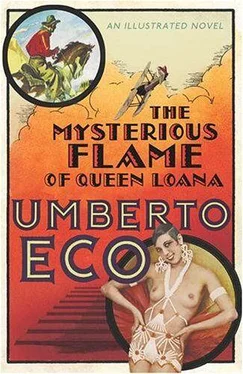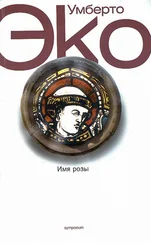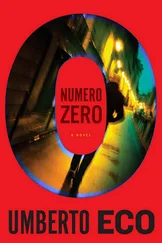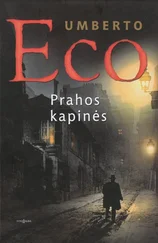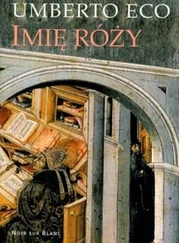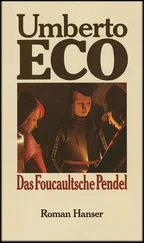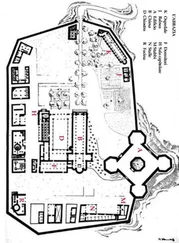Umberto Eco - The Mysterious Flame Of Queen Loana
Здесь есть возможность читать онлайн «Umberto Eco - The Mysterious Flame Of Queen Loana» весь текст электронной книги совершенно бесплатно (целиком полную версию без сокращений). В некоторых случаях можно слушать аудио, скачать через торрент в формате fb2 и присутствует краткое содержание. Жанр: Исторический детектив, на французском языке. Описание произведения, (предисловие) а так же отзывы посетителей доступны на портале библиотеки ЛибКат.
- Название:The Mysterious Flame Of Queen Loana
- Автор:
- Жанр:
- Год:неизвестен
- ISBN:нет данных
- Рейтинг книги:3 / 5. Голосов: 1
-
Избранное:Добавить в избранное
- Отзывы:
-
Ваша оценка:
- 60
- 1
- 2
- 3
- 4
- 5
The Mysterious Flame Of Queen Loana: краткое содержание, описание и аннотация
Предлагаем к чтению аннотацию, описание, краткое содержание или предисловие (зависит от того, что написал сам автор книги «The Mysterious Flame Of Queen Loana»). Если вы не нашли необходимую информацию о книге — напишите в комментариях, мы постараемся отыскать её.
The Mysterious Flame Of Queen Loana — читать онлайн бесплатно полную книгу (весь текст) целиком
Ниже представлен текст книги, разбитый по страницам. Система сохранения места последней прочитанной страницы, позволяет с удобством читать онлайн бесплатно книгу «The Mysterious Flame Of Queen Loana», без необходимости каждый раз заново искать на чём Вы остановились. Поставьте закладку, и сможете в любой момент перейти на страницу, на которой закончили чтение.
Интервал:
Закладка:
"Lili Marleen" came out not too long after the giddy "Comrade Richard." Either we were generally more optimistic than the Germans, or in the interim something had happened, our poor comrade had grown sad and, tired of walking through muck, longed to go back to his streetlamp. But I was coming to realize that the same series of propagandistic songs could explain how we had gone from a dream of victory to one of the welcoming bosom of a whore as hopeless as her clients.
After our initial enthusiasm, we grew accustomed not only to blackouts and, I imagine, to bombings, but also to hunger. Why else would it have been necessary to encourage the little Balilla Boy, in 1941, to cultivate a war garden on his apartment balcony, if not so that he could squeeze a few vegetables from the most paltry of spaces? And why has the boy received no news from his father at the front?
Dear Papà , my hand is shaking some , but you will understand what I am saying. It’s been so many days since you left home
and yet you haven’t told me where you’re staying.
As for the tears that trickle down my cheek ,
you can be sure they’re only tears of pride.
I still can see you smile and hear you speak ,
and your Balilla waits for you , arms wide.
I’m helping in the war , I’m fighting , too ,
with discipline , with honor , and with faith.
I want this land of mine to bear good fruit ,
so I tend my little garden every day
( my own war garden! ) and ask God each night
to watch you , to make sure my dad’s all right.
Carrots for victory. By contrast, in one of my notebooks I found a place where the headmaster had made us take note of the fact that our English enemies were a five-meal people. I must have thought to myself that I had five meals, too: coffee with bread and marmalade, a snack at ten at school, lunch, an afternoon snack, then dinner. But perhaps other children were not as fortunate, and a people who ate five meals a day could not but stir resentment among those who had to grow tomatoes on their balcony.
But then why were the English so skinny? And why did one of my grandfather’s postcards feature (above the word Hush! ) a crafty Englishman trying to overhear military secrets that some loose-lipped Italian comrade might let slip in some bar? How was such a thing possible if the entire population had rushed as one to take up arms? Were there Italians who spied? Had the subversives not been defeated, as the stories in my reader explained, by Il Duce with his march on Rome?
Various pages of my notebooks mentioned the now imminent victory. But as I was reading, a beautiful song dropped onto the turntable. It told the story of the last stand of Giarabub, one of our desert strongholds, where the exploits of our besieged soldiers, who finally succumbed to hunger and lack of munitions, attained epic dimensions. In Milan some weeks earlier, I had seen on television a
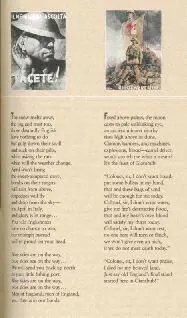
color movie about the last stand of Davy Crockett and Jim Bowie at the Alamo. Nothing is more exhilarating than the topos of the besieged fort. I imagine I once sang that sad elegy with the emotion of a boy watching a Western today.
I sang that England’s final stand had begun at Giarabub, but the song must have reminded me of Maramao , Why Did You Die , because it was the celebration of a defeat-my grandfather’s newspapers told me more: the Giarabub oasis in Cyrenaica had fallen, despite heroic resistance, in March of 1941. Using a defeat to electrify a population seemed to me a rather desperate measure.
And this other song, from the same year, that promised victory? "Blue Skies Are on the Way!" promised blue skies by April-by which time we were to lose Addis Ababa. In any case, people say "blue skies are on the way" when the weather is bad and they hope it will change. Why were blue skies supposed to be coming (in April)? A sign that during the winter, when the song was first sung, people had been looking forward to a reversal of fortune.
All the heroic propaganda we were raised on alluded to some frustration. What did the refrain "We will return" mean, if not that we looked forward to, hoped for, counted on a return to the place where we had been defeated?
And when did "The M Battalions" anthem come out?
Battalions of Il Duce , battalions of death created in life’s name , in the springtime begins the game , the continents will flame and flower! We’ll win with Mussolini’s Lions , made strong by his courageous power.
These battalions of death they are life battalions , too , there is no love without hate , so the game begins anew.
The M we wear is red like fate , our tassels black , and as for death we’ve faced it with grenades in hand and a flower between our teeth.
According to my grandfather’s dates, it must have come out in ’43, and once again, two years after Giarabub, springtime was invoked (we signed the armistice in September of ’43). Leaving aside the image, which must have fascinated me, of greeting death with grenades in hand and a flower between our teeth, why did the game have to begin again in springtime, why did it have to start over? Had it been stopped? And yet they had us singing it, in a spirit of incorruptible faith in final victory.
The only optimistic anthem that the radio offered me was the "Song of the Submariners": to creep through the ocean deep , laughing in the face of Lady Death and Fate… But those words reminded me of others, and I went looking for a song called "Young Ladies, Keep Your Eyes Off Sailor Boys."
They would not have had me sing this at school. Apparently it was played on the radio. The radio, then, played both the submariner’s song and the warning to young ladies. Two worlds.
The other songs, too, made it seem as if life were running on two different tracks: on one, the war bulletins; on the other, the endless lessons in optimism and gaiety that our orchestras offered in such abundance. Was war breaking out in Spain, with Italians dying on both sides, while our Chief passionately exhorted us to prepare for a larger, bloodier conflict? Luciana Dolliver sang (such an exquisite flame) don’t forget my words, my darling one, you don’t know what love is, the Barzizza Orchestra played oh baby how I love you, I’ve been dreaming of you, you slept, I stood above you, you smiled then in your sleep, and everyone was repeating Fiorin, Fiorello, l’amore è bello when you’re by my side. Was the regime celebrating beautiful country girls and productive mothers by imposing
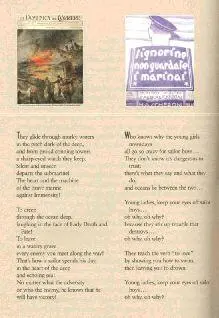
a bachelor tax? The radio gave notice that jealousy had gone out of fashion, that it had become uncouth.
Was war breaking out, and did we have to darken our windows and stay glued to the radio? Alberto Rabagliati whispered that we should turn the volume way down low to hear his heart beat through the radio. Had our campaign to "break the back of Greece" got off to a bad start, and had our troops begun dying in the mud? No worries, one does not make love when rain is falling.
Did Pippo really not know? How many souls did the regime have? The battle of El Alamein was raging beneath the African sun, and the radio was intoning that’s how I want to live, sun on my face, singing happily, full of bliss. We were going to war against the United States and our papers were celebrating the Japanese bombing of Pearl Harbor, and the airwaves were bringing us beneath Hawaiian skies you’ll watch the full moon rise and dream of paradise. (But perhaps the listening audience was not aware that Pearl Harbor was in Hawaii or that Hawaii was a U.S. territory.) Field Marshal Paulus was surrendering in Stalingrad amid stacks of bodies from both sides, and we were hearing I have a pebble in my shoe, and oh it’s really killing me.
Читать дальшеИнтервал:
Закладка:
Похожие книги на «The Mysterious Flame Of Queen Loana»
Представляем Вашему вниманию похожие книги на «The Mysterious Flame Of Queen Loana» списком для выбора. Мы отобрали схожую по названию и смыслу литературу в надежде предоставить читателям больше вариантов отыскать новые, интересные, ещё непрочитанные произведения.
Обсуждение, отзывы о книге «The Mysterious Flame Of Queen Loana» и просто собственные мнения читателей. Оставьте ваши комментарии, напишите, что Вы думаете о произведении, его смысле или главных героях. Укажите что конкретно понравилось, а что нет, и почему Вы так считаете.
